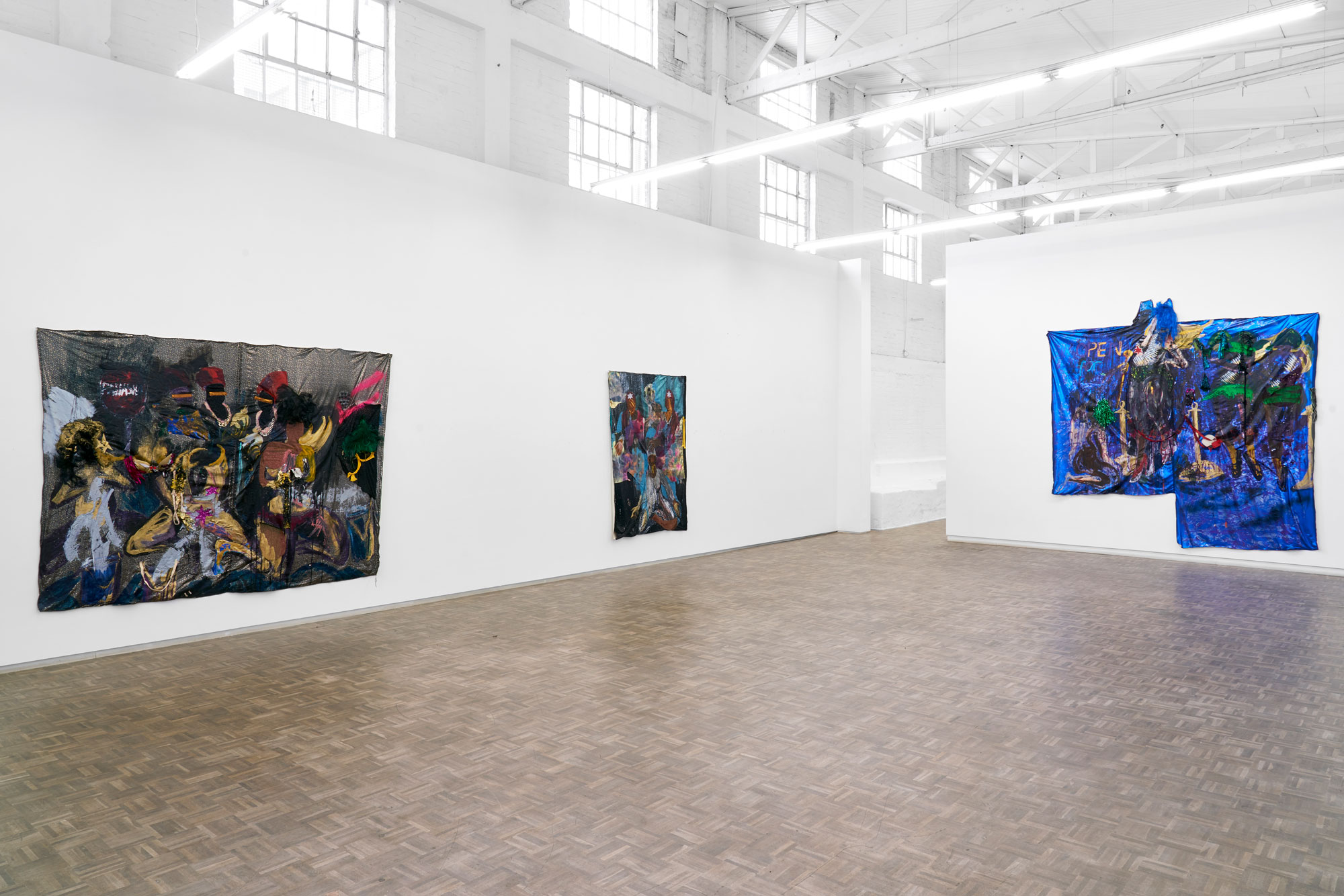

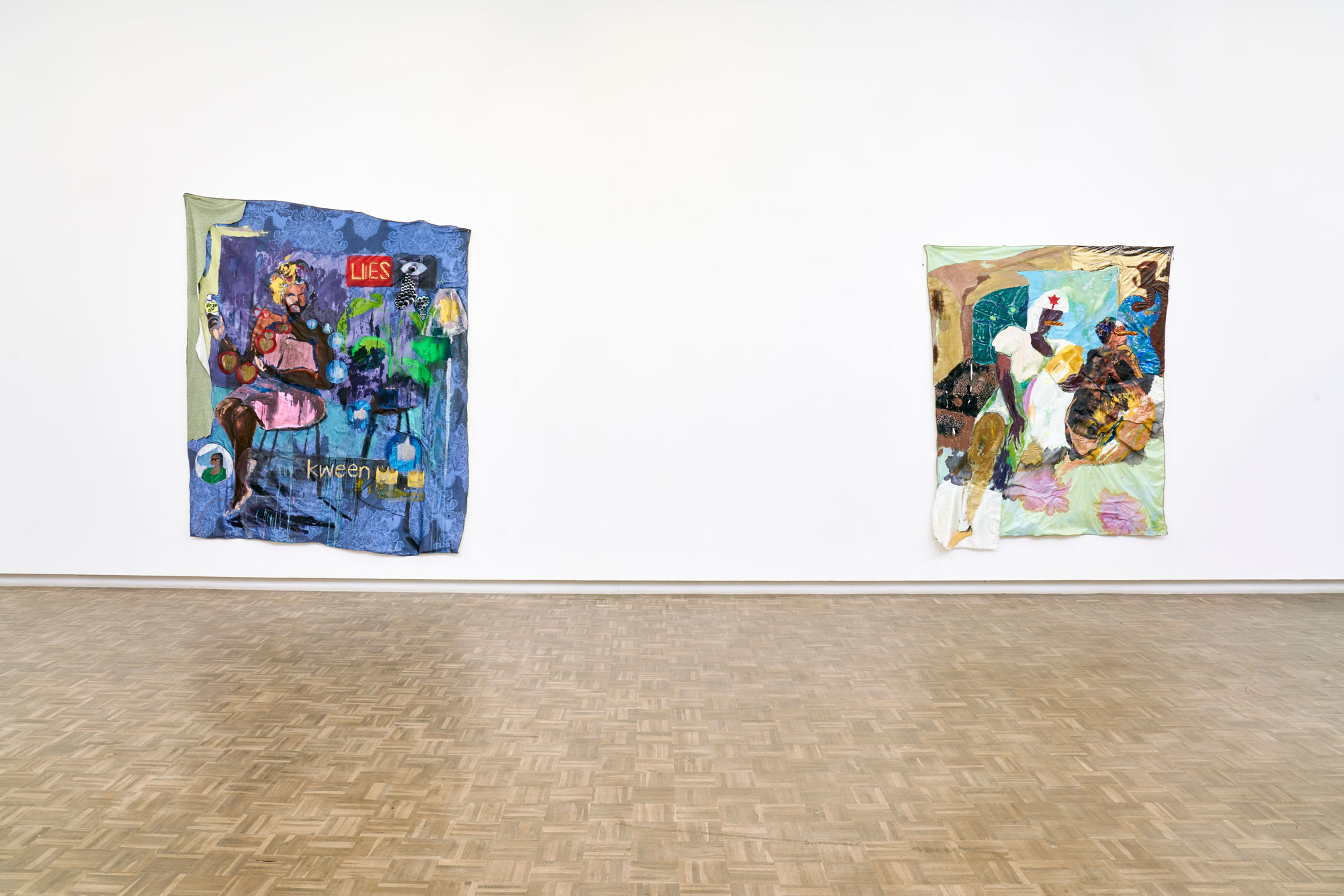
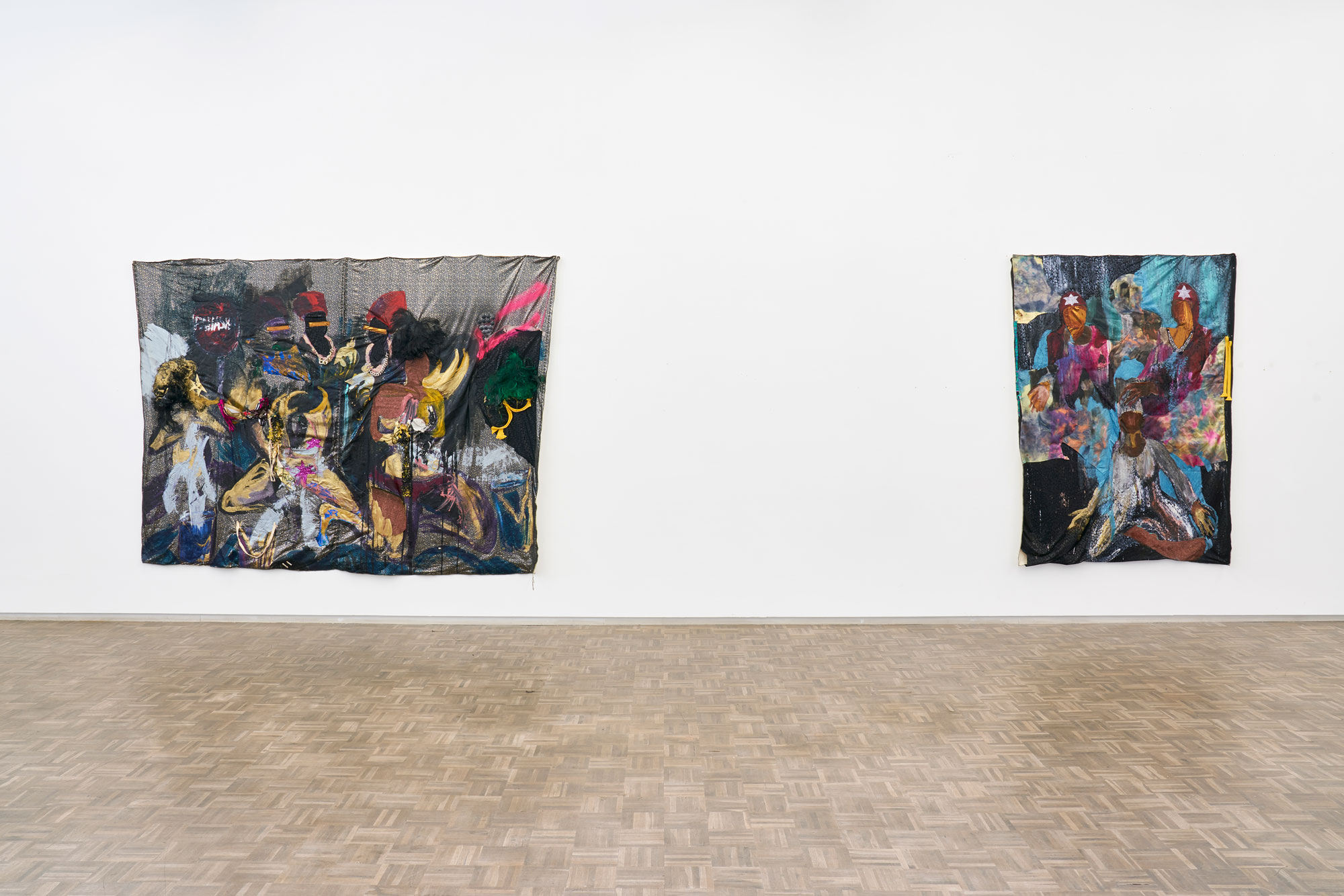











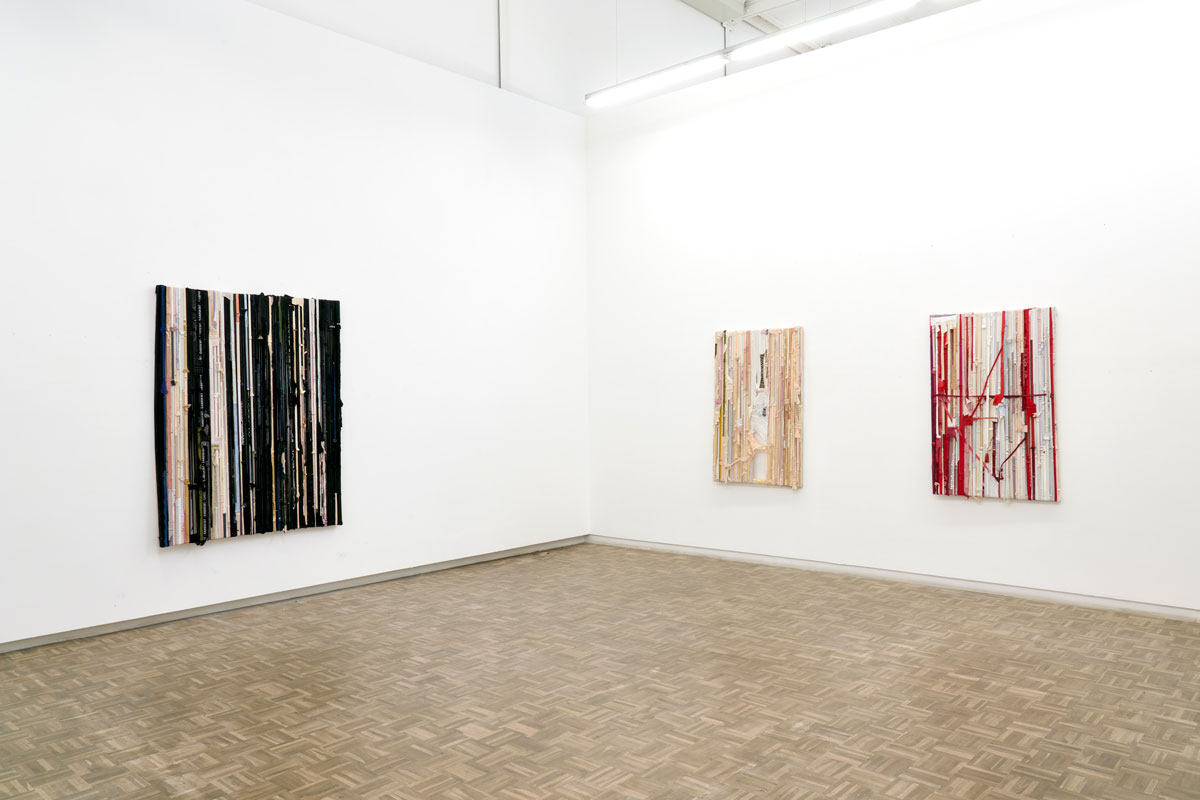








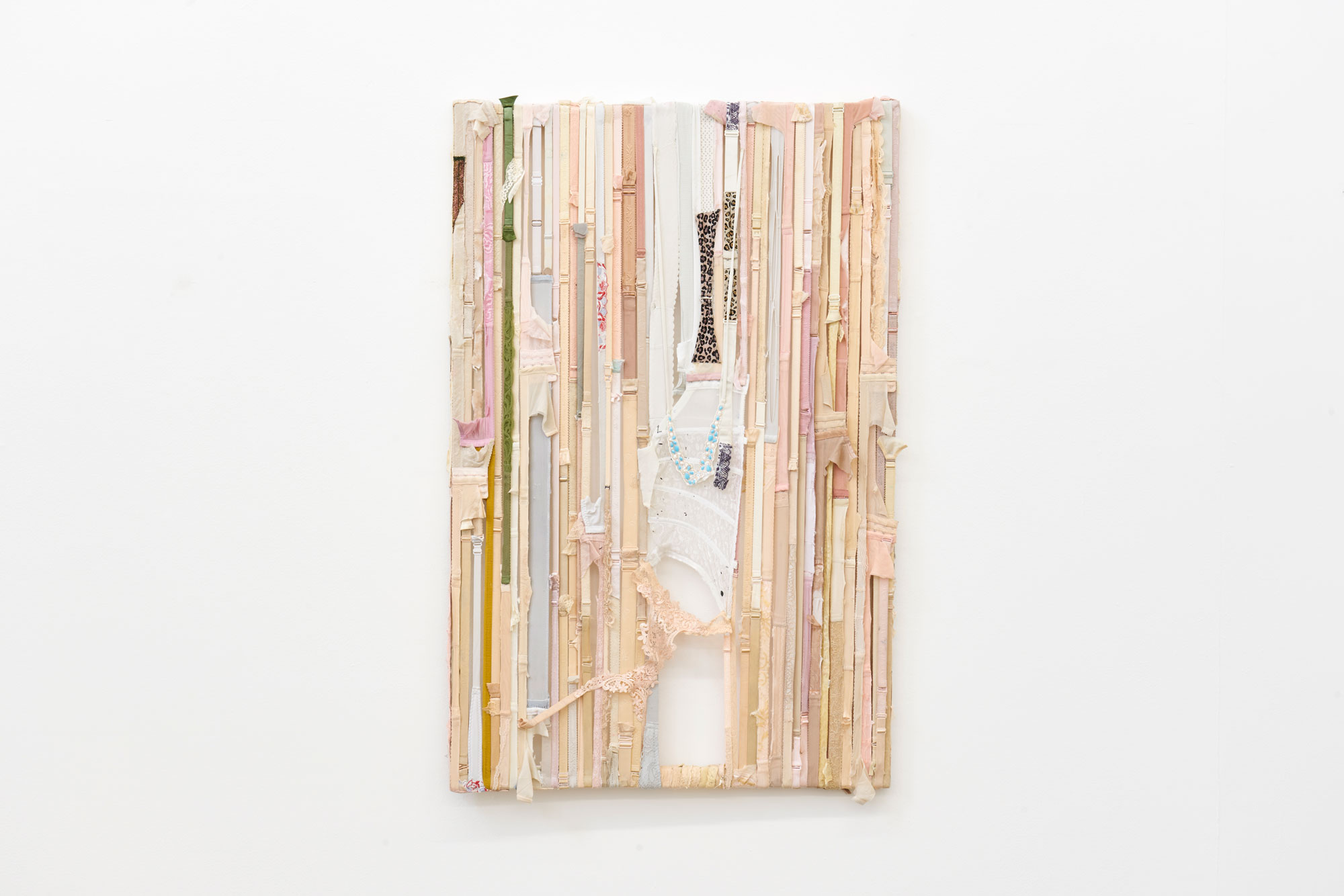
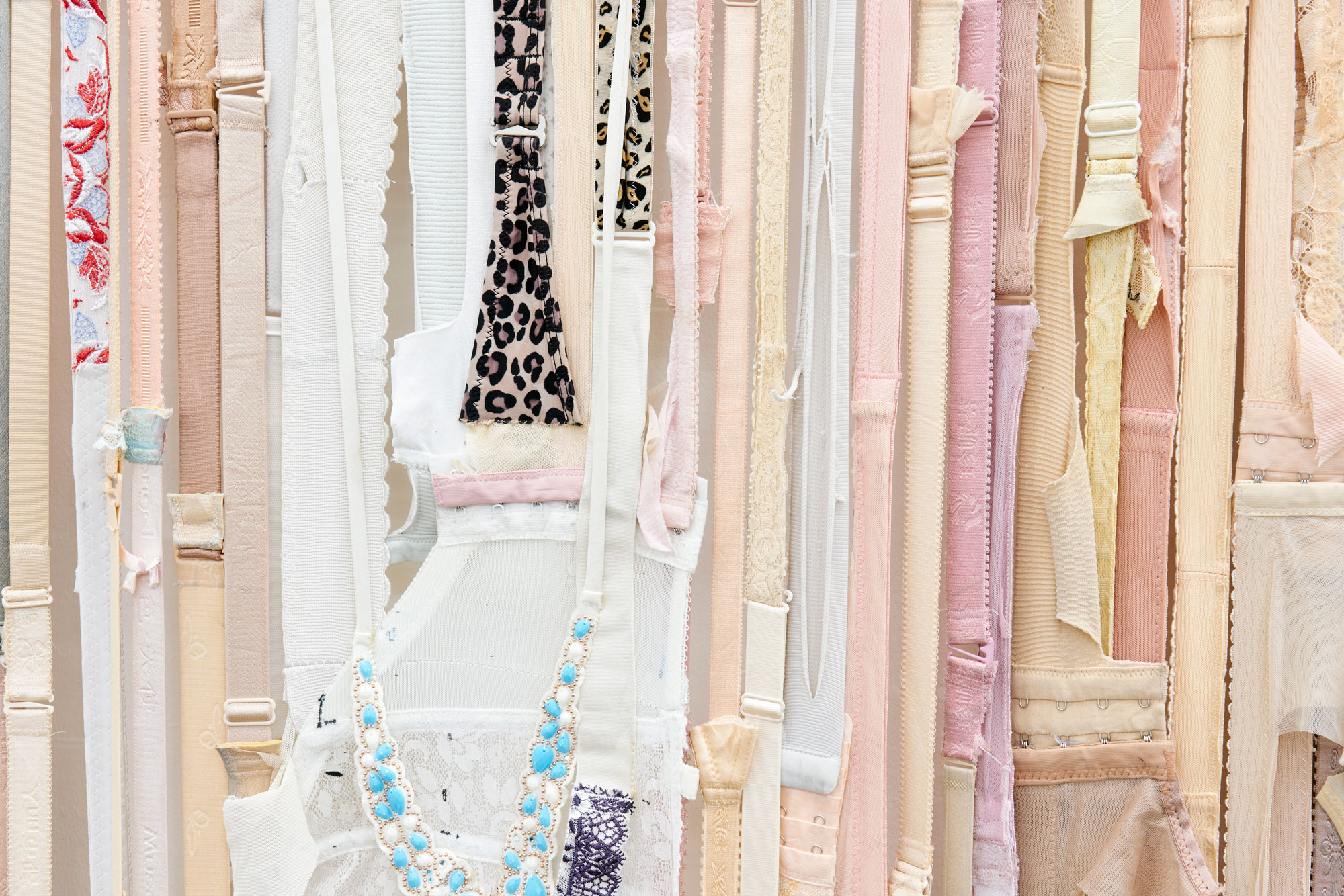


blank
is pleased to present Zviratidzo, a solo exhibition by Kresiah Mukwazhi. The exhibition is a continuation of the artist’s exploration of the world of sex work, while delving deeper into other themes of exploitation and abuse. Darker than previous work, Zviratidzo was created between Harare and Cape Town, caught in some in-between place and transient.
Zviratidzo is a polysemic word that means signs, symbols, symptoms, or revelations, according to the Shona translation of the Bible. Mukwazhi’s exhibition takes as a departure the story of Madzimai Catherine, a prophetess in the Nyenyedzi Nomwe apostolic sect who also is a sex worker. The irony is not lost here, and Mukwazhi invokes an unsettling visual language to interrogate the entanglement of the church and patriarchal systems of control. The exhibition also coincides with the story of Anna Machaya, an underage girl who died during childbirth at a Johanne Marange Apostolic sect shrine, and the public outcry at this death that restarted conversations about child marriages and the autonomy of control over women’s bodies and their destinies.
The exhibition features a selection of new textile and bra strap works that, through their making, articulate the kind of care needed to challenge the negative perceptions placed on women’s bodies when they engage in sexualised labour. In her depictions of dancers and sex workers, their corporeal bodies trapped in the structural arrangements of her sprawling tapestries, Mukwazhi introduces the softness and humanity found beneath the industry’s tough exterior to offer an intimate look at a group of people society would rather forget existed. Mukwazhi pays special attention to social epithets, common attitudes and stereotypes that constitute a further understanding of daily life. She relives memories through unique textile works that celebrate the lives of those who remain in the shadows.
This body of work moves from the promised sensuality of her previous exhibition, Mukando, to the confrontational. It offers a relational grammar to talk about remembering bodies and remembering land. Mukwazhi thinks through her hands to make space for retelling uncomfortable stories, and to provide trace evidence of the urgently-needed justice not yet arrived. Expanding her repertoire to employ cunning, trickster tools, the visual vocabulary of her new works speaks of the nature of power and its silencing strategies associated with violence through metaphor and analogy. The use of the cloth and other materials points to the varied experiences of women, and there are economies of care in the registers used in conversing and storytelling. Mukwazhi refuses totalising, false, biased or inexact narratives to show the limitlessness of lives: these women are backed by a sisterhood that is likened to an ‘army’ in “Murungu anoisa katsvimbo mandiri”. In its remembrance of bodies, her work is also a commentary on the use of labour and the socio-political hierarchy.
In these precarious times when it feels like we are standing on the edge of a precipice, the sex worker is at even more risk. The various lockdowns have narrowed or completely throttled the chances for sex workers to work safely and have made abuse even more prevalent. Mukwazhi’s work is in service of the bodies that remain in the shadows while expanding to invoke conversations of what it means to be in the world. The double messaging in how she appropriates symbols highlights the need for us to take extra care in our perceptions as witnesses. Perhaps it is here, in the artist’s hospitable gaze and symbolic gestures, that we can find the seeds of future social and cultural practices and attitudes in attending to the stories of the Other.
Text by Fadzai Veronica Muchemwa
Kresiah Mukwazhi (b.1992, Harare, Zimbabwe) is a graduate of the National Gallery of Zimbabwe Visual Art School and the Market Photo Workshop in South Africa. Mukwazhi is a multidisciplinary artist whose artistic practice draws on personal experiences and observations of gender-based violence, exploitation and abuse.
Recent exhibitions include Not The Usual Suspects (2018) at the Iziko South African National Gallery, Five Bobh - Painting at the End of an Era (2019) at the Zeitz Museum of Contemporary Art Africa, Mixed Company (2020) at the Norval Foundation and Mukando (2020) at Jan Kaps Gallery, Cologne. In 2022, Mukwazhi will represent Zimbabwe at the Venice Biennale.
Zviratidzo is a polysemic word that means signs, symbols, symptoms, or revelations, according to the Shona translation of the Bible. Mukwazhi’s exhibition takes as a departure the story of Madzimai Catherine, a prophetess in the Nyenyedzi Nomwe apostolic sect who also is a sex worker. The irony is not lost here, and Mukwazhi invokes an unsettling visual language to interrogate the entanglement of the church and patriarchal systems of control. The exhibition also coincides with the story of Anna Machaya, an underage girl who died during childbirth at a Johanne Marange Apostolic sect shrine, and the public outcry at this death that restarted conversations about child marriages and the autonomy of control over women’s bodies and their destinies.
The exhibition features a selection of new textile and bra strap works that, through their making, articulate the kind of care needed to challenge the negative perceptions placed on women’s bodies when they engage in sexualised labour. In her depictions of dancers and sex workers, their corporeal bodies trapped in the structural arrangements of her sprawling tapestries, Mukwazhi introduces the softness and humanity found beneath the industry’s tough exterior to offer an intimate look at a group of people society would rather forget existed. Mukwazhi pays special attention to social epithets, common attitudes and stereotypes that constitute a further understanding of daily life. She relives memories through unique textile works that celebrate the lives of those who remain in the shadows.
This body of work moves from the promised sensuality of her previous exhibition, Mukando, to the confrontational. It offers a relational grammar to talk about remembering bodies and remembering land. Mukwazhi thinks through her hands to make space for retelling uncomfortable stories, and to provide trace evidence of the urgently-needed justice not yet arrived. Expanding her repertoire to employ cunning, trickster tools, the visual vocabulary of her new works speaks of the nature of power and its silencing strategies associated with violence through metaphor and analogy. The use of the cloth and other materials points to the varied experiences of women, and there are economies of care in the registers used in conversing and storytelling. Mukwazhi refuses totalising, false, biased or inexact narratives to show the limitlessness of lives: these women are backed by a sisterhood that is likened to an ‘army’ in “Murungu anoisa katsvimbo mandiri”. In its remembrance of bodies, her work is also a commentary on the use of labour and the socio-political hierarchy.
In these precarious times when it feels like we are standing on the edge of a precipice, the sex worker is at even more risk. The various lockdowns have narrowed or completely throttled the chances for sex workers to work safely and have made abuse even more prevalent. Mukwazhi’s work is in service of the bodies that remain in the shadows while expanding to invoke conversations of what it means to be in the world. The double messaging in how she appropriates symbols highlights the need for us to take extra care in our perceptions as witnesses. Perhaps it is here, in the artist’s hospitable gaze and symbolic gestures, that we can find the seeds of future social and cultural practices and attitudes in attending to the stories of the Other.
Kresiah Mukwazhi (b.1992, Harare, Zimbabwe) is a graduate of the National Gallery of Zimbabwe Visual Art School and the Market Photo Workshop in South Africa. Mukwazhi is a multidisciplinary artist whose artistic practice draws on personal experiences and observations of gender-based violence, exploitation and abuse.
Recent exhibitions include Not The Usual Suspects (2018) at the Iziko South African National Gallery, Five Bobh - Painting at the End of an Era (2019) at the Zeitz Museum of Contemporary Art Africa, Mixed Company (2020) at the Norval Foundation and Mukando (2020) at Jan Kaps Gallery, Cologne. In 2022, Mukwazhi will represent Zimbabwe at the Venice Biennale.